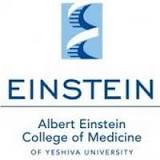Desipramine Hydrochloride and Filgrastim For Stem Cell Mobilization in Patients With Multiple Myeloma Undergoing Stem Cell Transplant
| Status: | Active, not recruiting |
|---|---|
| Conditions: | Blood Cancer, Blood Cancer, Blood Cancer, Blood Cancer, Hematology |
| Therapuetic Areas: | Hematology, Oncology |
| Healthy: | No |
| Age Range: | 18 - 70 |
| Updated: | 4/21/2016 |
| Start Date: | December 2012 |
Pilot Clinical Study of GCSF in Combination With Desipramine for Autologous Stem Cell Mobilization in Multiple Myeloma
This pilot clinical trial studies how well desipramine hydrochloride and filgrastim works
for stem cell mobilization in patients with multiple myeloma undergoing stem cell
transplant. Giving colony-stimulating factors, such as filgrastim, and other drugs, such as
desipramine hydrochloride, helps stem cells move from the patient's bone marrow to the blood
so they can be collected and stored.
for stem cell mobilization in patients with multiple myeloma undergoing stem cell
transplant. Giving colony-stimulating factors, such as filgrastim, and other drugs, such as
desipramine hydrochloride, helps stem cells move from the patient's bone marrow to the blood
so they can be collected and stored.
PRIMARY OBJECTIVES:
I. To study efficacy, safety, harvest kinetics and engraftment kinetics of patients
undergoing autologous stem cell mobilization, mobilized with a combination of granulocyte
colony-stimulating factor (GCSF) (filgrastim) with desipramine (desipramine hydrochloride)
(G+D).
II. To analyze polymorphisms of adrenergic receptor beta 2 (ADRB2) and adrenergic receptor
beta 3 (ADRB3) genes that correlate with mobilization efficiency.
OUTLINE:
Patients receive desipramine hydrochloride orally (PO) daily on days -3 to +4 and filgrastim
PO twice daily (BID) on days 1-4. Stem cell collection begins on day 6.
After completion of study treatment, patients are followed up 1 week after completion of
stem cell collection.
I. To study efficacy, safety, harvest kinetics and engraftment kinetics of patients
undergoing autologous stem cell mobilization, mobilized with a combination of granulocyte
colony-stimulating factor (GCSF) (filgrastim) with desipramine (desipramine hydrochloride)
(G+D).
II. To analyze polymorphisms of adrenergic receptor beta 2 (ADRB2) and adrenergic receptor
beta 3 (ADRB3) genes that correlate with mobilization efficiency.
OUTLINE:
Patients receive desipramine hydrochloride orally (PO) daily on days -3 to +4 and filgrastim
PO twice daily (BID) on days 1-4. Stem cell collection begins on day 6.
After completion of study treatment, patients are followed up 1 week after completion of
stem cell collection.
Inclusion Criteria:
- Patients eligible for autologous stem cell transplant for multiple myeloma; planned
use of filgrastim (GCSF) for stem cell mobilization
- Ability to give informed consent
- Glomerular filtration rate (GFR) > 30 ml/minute
- Liver function tests < 2.5 x upper limit of normal (ULN)
- Eastern Cooperative Oncology Group (ECOG) performance status (PS) 2 or less
- Based on prior therapy patients will be classified into two categories:
- Initial mobilizers with no exposure to alkylators
- Remobilizers or with prior exposure to alkylators or with greater than 5 cycles
of lenalidomide therapy prior to mobilization
Exclusion Criteria:
- Use of a monoamine oxidase inhibitor (MAO-I) during or within 2 weeks of desipramine
therapy
- Concomitant therapy with any drugs shown to have major interactions with desipramine
- Concurrent use of drugs that are contraindicated with desipramine
- Myocardial infarction in preceding 4 weeks; history of uncontrolled cardiac
arrhythmias or family history of sudden cardiac death; baseline corrected QT (QTc) >
460 msec
- Active alcohol abuse
- Bipolar disorder
- Untreated active major depression
- History of seizures in the past 3 years
- Pregnancy and lactation; refusal to use adequate contraception
- Uncontrolled thyroid disease
- GCSF or pegfilgrastim use within 14 days prior to enrollment
- Bortezomib, Revlimid or thalidomide use within 7 days of enrollment
- Patients with sickle cell disease
We found this trial at
1
site
Albert Einstein College of Medicine The Albert Einstein College of Medicine of Yeshiva University is...
Click here to add this to my saved trials
